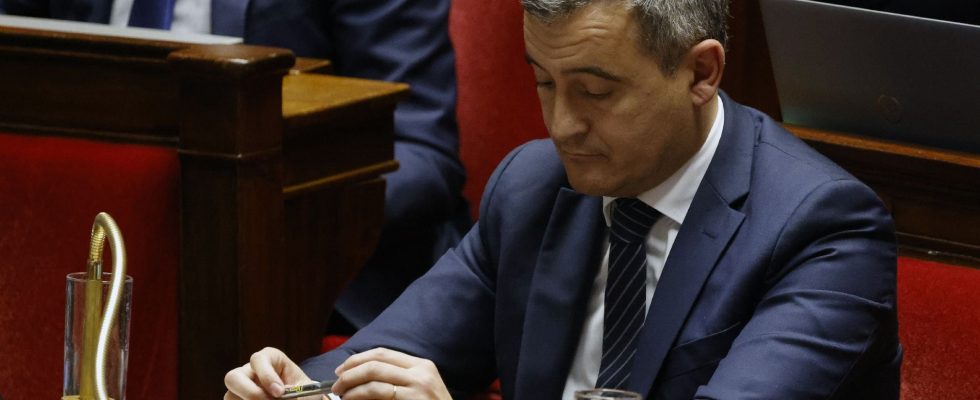The Minister of the Interior, Gérald Darmanin, told the press this weekend, before the passage of his “immigration” bill in the Chamber, Monday December 11, that he “does not imagine[ait] not” such a scenario. At the end of the vote on the motion to reject, the oppositions won by 270 votes to 265, and the text could not be debated.
Nine majority deputies were absent (five Renaissance deputies, three MoDem and one Horizons). The government therefore wakes up this Tuesday with a bitter taste but, above all, with this question in mind: what strategy to choose for the future?
The pure and simple removal of the text
The solution of withdrawing the text, which would signify the end of the legislative process, appears highly improbable. However, this option is widely supported by left-wing oppositions. The environmentalist deputies behind the rejection motion called on the government to draw conclusions from its defeat by “definitively” renouncing its text. The socialist group called for “abandoning this bad faith”.
“If the government decides to go into force, we will have reached a milestone in authoritarianism,” warned LFI coordinator Manuel Bompard on RTL, according to whom, “in a normal democracy, the minister would have left with his text” .
The National Rally (RN) also wants the text withdrawn, in order to be able to propose one of their own. “It would be a mistake to impose this text,” said MP Sébastien Chenu. The group’s boss in the Assembly, Marine Le Pen, spoke of an “extremely powerful disavowal for the government”, and announced the tabling of her own text.
However, this perspective is not that of the presidential coalition, which called in a joint statement to “continue as quickly as possible” the legislative process, considering that this text was “necessary and expected of the French” and castigating “the irresponsibility of the oppositions”. Gérald Darmanin, for his part, announced on TF1 that the “President of the Republic [l’avait] responsible for proposing a follow-up for this text”. In the evening, the Elysée reported that Emmanuel Macron had called on the government to lift the “blockages” to “achieve an effective text of law”.
Propose the same text again after passing the Senate
The continuation could therefore be a new passage to the Senate for a new reading and to continue the parliamentary shuttle before a new passage to the Assembly. This option is also unlikely. This would be the assurance of emerging with a text that is still hardened, and potentially difficult to have accepted by the left wing of the majority.
On the other hand, this possibility suits the Republicans perfectly: “Only the text that came out of the Senate, and only this one, suits us,” declared Eric Ciotti at Parisian, Saturday December 9. A few weeks ago, the Upper House of Parliament adopted the government’s bill in a version largely toughened by the right-wing majority. This notably provided for the removal of the measure on “jobs in shortage” and the replacement of state medical aid with emergency medical aid.
Passage of the text to the joint joint committee: the choice of reason
The formation of a joint committee (CMP) likely to result in a compromise text then appears to be the hypothesis most likely to materialize. This is a closed meeting comprising seven deputies and seven senators who will seek to develop a common version. But it should still be voted on in the Senate and the Assembly, which will have the last word, and where the use of 49.3 is not excluded.
“Institutionally, the text is now possibly in CMP,” underlined Gérald Darmanin, suggesting his preference for this option. “Whatever path we take, I want firm measures for the police, for the magistrates, for the prefects very quickly,” he insisted, assuring that his text was “popular with the French” .
However, according to Jean-Eric Schoettl, former secretary general of the Constitutional Council, interviewed by Pointa CMP “more right-wing in sensitivity than the Assembly […] could adopt a text close to that of the Senate”. For the moment, no decision has yet been taken.
